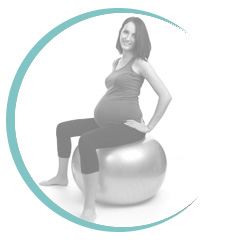Pre & post natal PHYSIOTHRRSPYIO
PRE AND POSTNATAL PHYSIOTHERAPY

Pregnancy is an amazing and life changing experience, however it can take a toll on your body as it transforms to accommodate your growing baby. During pregnancy, your body undergoes dramatic change in a fairly short period of time. As the baby grows inside you, your hormones, posture and balance change. With time, as the baby gets heavier, the pressure inside your abdomen and down onto your pelvic floor muscles increases. This pressure means your pelvic floor muscles need to stay strong to support the weight of the baby from above and to prevent leakage of urine. The muscles, joints and ligaments undergo many changes which affect the whole body, and it is common to experience a variety of musculoskeletal symptoms.
Prenatal Physiotherapy
Some common conditions you may experience during pregnancy include:
- Pelvic girdle/ Hip/ Groin/ Pubic pain
- Lower back/ Sacroiliac joint (SIJ) pain/ Sciatica
- Thoracic/ Rib pain
- Pelvic floor weakness and Urinary incontinence
- Carpal tunnel syndrome
As every pregnancy is different, our experienced physiotherapists will design a specific program to suit your needs. Based on your assessment, your treatment may include assessment and strengthening of the pelvic floor and core muscles, joint mobilisations, massage, an exercise program to maintain flexibility and strength, education and advice.
Postnatal Physiotherapy
Post pregnancy (vaginal or caesarean), there will be a degree of weakening of your pelvic floor muscles. The pelvic floor muscles are vital for continence, pelvic stability and sexual function and they are adversely affected through pregnancy and delivery. To prevent long term problems, it is essential to start pelvic floor exercises as soon as possible. Postnatally you will find yourself holding your baby in sustained positions and doing lots of lifting, which can lead to many aches and pains. Common problems experienced postnatally include:
- Stress and urge incontinence
- Pelvic and Lower back pain
- Upper back and Neck pain
- Diastasis Recti (Abdominal separation)
Your Postnatal MOT will include:
- Internal pelvic floor assessment
- Pelvis, SIJ and Lumbar spine assessment
- Diastasis recti (abdominal separation) assessment
- Return to sport assessment
- Scar assessment
Treatment may include an individualised pelvic floor program, abdominal and core strengthening, treatment of any musculoskeletal issues found, scar tissue management and advice on return to sport, nutrition, sleep, posture and ergonomics.
Ideally a Postnatal MOT should be performed from 6 weeks postnatally (after you have had your GP check-up), but even if your pregnancy was years ago, it’s never too late!
Contact us& RegAine team ready
on your door step service.
njayanta.pt@gmail.com
What's apps 9733070839
Thank you.




0 Comments:
Post a Comment
Subscribe to Post Comments [Atom]
<< Home